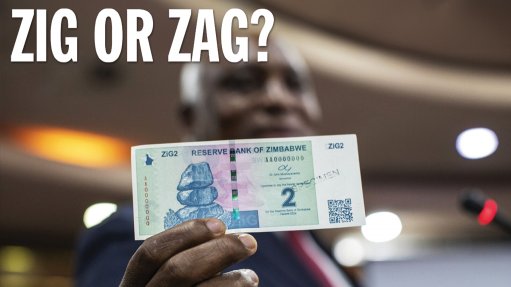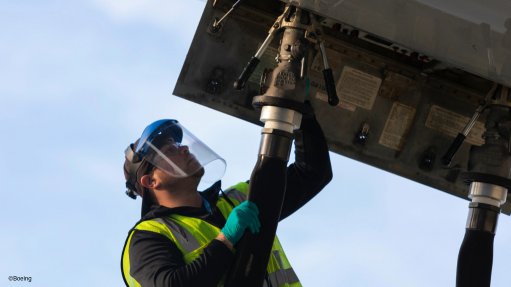Poverty comes with a data premium – Competition Commission hears
Just over a year since initiating a market inquiry into data services, the Competition Commission on Wednesday kicked off its three-day public hearings to obtain a clear understanding of what is causing or leading to high data prices, along with the current state of competition, in South Africa.
Early indications emerging from the presentations are that poor South Africans are left on the periphery of the economy as they face price discrimination for buying airtime and data in the small quantities that they can afford at a time, and are disproportionately situated in rural areas that receive poor network quality.
Requested by Economic Development Minister Ebrahim Patel last year, the commission, as part of its evidence gathering phase, is hosting nearly 20 market participants, companies, government and associations over the next three days.
This followed the widespread calls by consumers for lower data costs and subsequent queries from at least three Ministers over high data costs and data affordability.
The commission initiated the inquiry because it believes there are features in this market that prevent, distort or restrict competition within the sector.
Competition Commission chief economist Dr Liberty Mncube on Wednesday said that the inquiry has four broad questions it is seeking answers to.
This included whether South Africa’s data prices are very high and, to the extent that data prices are higher than they ought to be, there are questions surrounding what factors are driving this.
Further, the commission seeks to determine how those factors can be effectively remedied and what the impact of high data prices and access issues is on low-income consumers.
The commission heard on Wednesday that South Africa’s poor face a price discrimination in terms of mobile data provision, wherein the “less connected”, low-income population buy data in very small quantities at a time, effectively being penalised and paying more in the long run based on the current volume-based discount structure of bundles and airtime purchases.
“The first clear issue is that the less connected [low-income and poverty-line population] buy airtime and data in very small quantities. At the time of a survey [on three wards, one rural and two urban], the vast majority [of those surveyed] had less than R5 airtime on their mobile phones . . . and more commonly buy airtime [or data] in R10, R5 and R2 batches,” said University of the Witwatersrand Jamlab director Indra de Lanerolle.
“The less connected pay a very high poverty premium for mobile data,” he told the Competition Commission panel, explaining that the small bundles effectively cost much more per MB than larger bundles, delivering an “extreme form of price discrimination” in an economy where about 20% of the population live below the poverty line and 30% on the low-income line.
DG Murray Trust CEO David Harrison explained that smaller data bundles can cost more than a cumulative R650 per GB, as poor communities buy small 15 MB or 20 MB bundles at a time, which are charged at significant higher pricings per MB than larger 1 GB and up packages and post-paid values.
This means that those on the poverty line and low incomes spend a sixth to a third of their per capita monthly income on telecommunications and pay 10 to 30 times more than affluent populations.
“Poorer consumers get the rawest deal,” he said.
Amandla.mobi executive director Koketso Moeti added that millions of South African’s live in informality, with no access to the data providers and data services that more affluent South Africans are afforded.
This is particularly concerning as many essential services are increasingly becoming available online, shutting out a significant portion of the population that just cannot afford high data prices.
De Lanerolle recommends regulation to limit the spread of pricing between small and large data bundles; regulation to limit the spread of pricing between contract and prepaid customers; the abolishment of out-of-bundle practices; and the development of new price and affordability indices that take into account sachet pricing and avoid measures of affordability that use average incomes.
South Africa has the most extensive coverage, highest quality services and infrastructure and a comparatively high 53% Internet penetration and use rate when compared with its African counterparts, which have cheaper data prices.
However, the unconnected 47% are all in the lower income bracket, with affordability still out of reach for half of South Africans, Research ICT Africa senior researcher Onkokame Mothobi said on Wednesday.
South Africa is currently ranked 35 out of 49 African countries on a Research ICT Africa pricing index, which concludes that the cost of the cheapest 1 GB data, at $8.28, is seven times higher than cost of best ranked Egypt’s $1.13/GB, and three times the price of Nigeria, Ghana and Uganda.
He explained that some of the cost drivers include the high rand:dollar exchange rate which impacts the importation of the required equipment and infrastructure; the increasing costs of key inputs; the absence of high-demand spectrum; and regulatory issues.
“The high cost of communication in South Africa is directly linked to systemic failures of policy and implementation by government, and lack of regulation and competition in the telecommunications industry,” Right2Know (R2K) representatives maintained at the hearings.
For income categories between R500 and R2 000 a month, loss of economic opportunities experienced by the inability to communicate can have strong negative consequences on households, the company said, reinforcing the view that data should be a basic right and reflect the economic demographics of the country.
R2K asserted that affordable data prices are important because they enable households to conduct tasks that would otherwise require extra money, such as accessing opportunities, applying for jobs, undertaking small business-related transactions, crime prevention and banking and financial inclusion.
The association suggested the commission intervene to separate wholesale and retail divisions of the mobile operators, while regulatory bodies need to ensure that data costs are decreased to match the socioeconomic needs of South Africans and ensure that data bundles do not expire if they are unused.
Further recommendations include making SMS a free service, the basic provision of free airtime and data, an improved quality of service, and zero-rating calls to a range of emergency services, schools and hospitals.
THE DATA MARKET INQUIRY
The inquiry aims to cover all relevant players in the value chain that contribute to or influence the price of data services, and obtain a deeper understanding of the data services value chain.
It will also assess the state of competition in the market at every stage of the value chain for the provision of data services to identify areas of market power where consumers may be exploited or excluded, or where structural, behavioural or regulatory factors influence competition or pricing.
As part of the assessments, the commission will delve into the market structure, the general adequacy and impact of the current regulatory regime, and the adequacy of regulation to promote new South African entrants.
Further, strategic behaviour by large fixed and mobile incumbents will be reviewed, along with the network infrastructure-sharing trends among industry and the fixed and mobile network operators’ costs and profits.
Lastly, the commission will unpack the investment in infrastructure undertaken by operators and the access to and allocation of spectrum as they relate to data services pricing and competition concerns.
Ultimately, the final outcome of the review will be for the commission to obtain a clear understanding of the data services value chain, benchmark South Africa’s data services pricing internationally, and establish whether data supply quality and coverage is adequate by international standards and in line with the country’s developmental needs.
The commission will publish a report at the conclusion of the market inquiry.
Comments
Press Office
Announcements
What's On
Subscribe to improve your user experience...
Option 1 (equivalent of R125 a month):
Receive a weekly copy of Creamer Media's Engineering News & Mining Weekly magazine
(print copy for those in South Africa and e-magazine for those outside of South Africa)
Receive daily email newsletters
Access to full search results
Access archive of magazine back copies
Access to Projects in Progress
Access to ONE Research Report of your choice in PDF format
Option 2 (equivalent of R375 a month):
All benefits from Option 1
PLUS
Access to Creamer Media's Research Channel Africa for ALL Research Reports, in PDF format, on various industrial and mining sectors
including Electricity; Water; Energy Transition; Hydrogen; Roads, Rail and Ports; Coal; Gold; Platinum; Battery Metals; etc.
Already a subscriber?
Forgotten your password?
Receive weekly copy of Creamer Media's Engineering News & Mining Weekly magazine (print copy for those in South Africa and e-magazine for those outside of South Africa)
➕
Recieve daily email newsletters
➕
Access to full search results
➕
Access archive of magazine back copies
➕
Access to Projects in Progress
➕
Access to ONE Research Report of your choice in PDF format
RESEARCH CHANNEL AFRICA
R4500 (equivalent of R375 a month)
SUBSCRIBEAll benefits from Option 1
➕
Access to Creamer Media's Research Channel Africa for ALL Research Reports on various industrial and mining sectors, in PDF format, including on:
Electricity
➕
Water
➕
Energy Transition
➕
Hydrogen
➕
Roads, Rail and Ports
➕
Coal
➕
Gold
➕
Platinum
➕
Battery Metals
➕
etc.
Receive all benefits from Option 1 or Option 2 delivered to numerous people at your company
➕
Multiple User names and Passwords for simultaneous log-ins
➕
Intranet integration access to all in your organisation


















